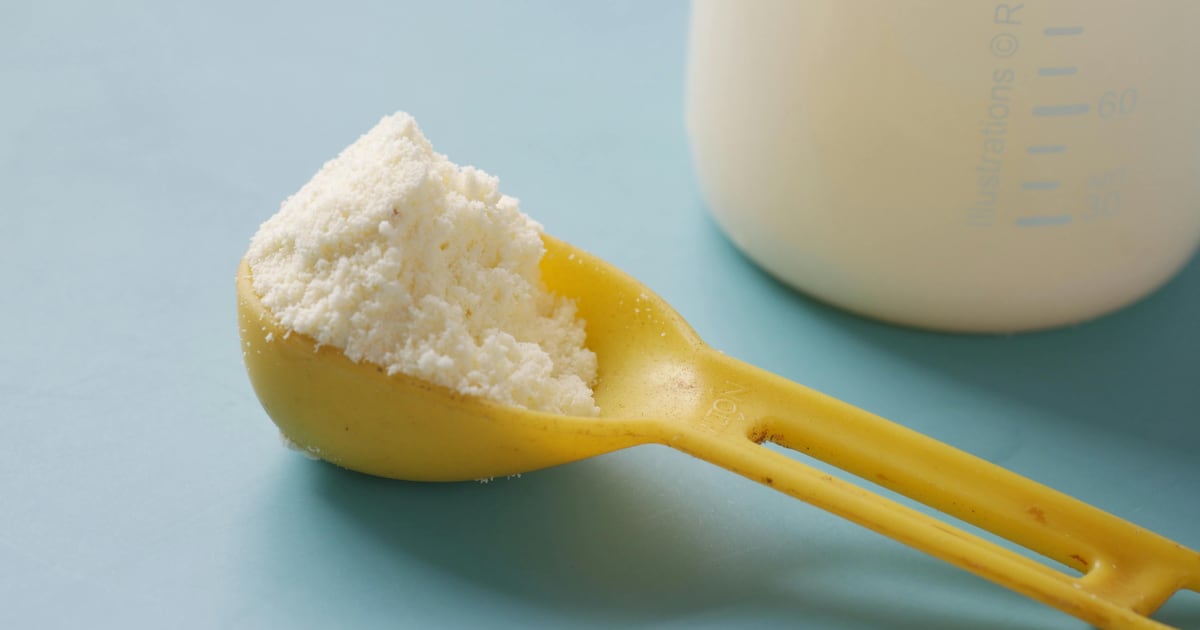Health
Parents Turn to Facebook Amid Baby Formula Shortage Crisis

Parents across Canada are increasingly relying on social media platforms like Facebook to secure baby formula, driven by rising prices and supply shortages. The situation has escalated as families navigate financial hardships, with some resorting to purchasing from strangers to ensure their infants have access to essential nutrition.
In June, Tonmoy Chakraborty found himself with 18 bottles of Enfamil baby formula after discovering his daughter did not prefer this brand. He turned to a Facebook group called Baby Formula Share Toronto, posting, “Willing to let go at $135 for both — pickup in Scarborough.” The response was swift and surprising. “I received between 15 to 20 replies in just an hour,” Chakraborty told CTV News in a recent interview. “Some people were willing to drive from as far as Sudbury for a deal. It made me realize that for many parents, the cost of formula can represent a significant portion of their weekly paycheck.”
This trend is not isolated. Numerous Facebook groups have emerged across Canada, facilitating both sales and requests for baby formula. Maryrose Inserto, who manages the Toronto Moms & Babies Free Stuff group, noted that posts seeking formula occur almost daily. Many parents are compelled to make sacrifices in their spending habits to manage the rising costs. Inserto shared her own experience, saying, “We’ve cut down on outings and gifts just to ensure we have a financial safety net for purchasing my baby’s specialized formula, which is non-negotiable.”
The price of baby formula has nearly doubled since the onset of the COVID-19 pandemic, according to Statistics Canada. The average cost for 900 grams of formula now stands at $50.27, up from $29.36 in 2020. Sylvain Charlebois, senior director of the Agri-Food Analytics Lab, highlighted that baby formula has experienced the highest price increase among food items in Canada, surging by 68 percent over the past five years.
Several factors have contributed to this crisis, including production disruptions at major manufacturers such as Abbott and Nestlé in the United States. These issues have led to a significant supply shortage in Canada. Recently, Canada opened its first domestic baby formula facility, Canada Royal Milk, located in Kingston, Ontario, aiming to boost local production. Despite these efforts, Charlebois emphasized Canada’s ongoing dependency on imports, particularly from the U.S., which increases vulnerability due to market fluctuations.
Efforts to alleviate the situation are underway. Health Canada has permitted the temporary importation of products from Europe to help meet demand. Over 70 products are currently eligible for this policy, with the list updated regularly to include new options.
Food banks across the country are also feeling the strain. According to Natasha Bowes of North York Harvest Food Bank, baby formula is among the most requested items. “We rarely receive formula donations, and over 53 percent of families are skipping meals to afford necessities for their children, including baby formula,” she stated.
The increasing demand has placed additional pressure on food banks, as they strive to support both local families and newcomers to Canada. Trevor Nicolle, a volunteer with St. Paul’s on-the-Hill Community Food Bank in Pickering, Ontario, noted that the organization is now serving not only local residents but also asylum seekers and refugees, complicating efforts to maintain adequate supplies.
In response to the growing crisis, Health Canada is working closely with manufacturers to stabilize the supply of infant formulas typically available in the Canadian market. The agency has reiterated its commitment to addressing these disruptions and ensuring that parents have access to essential nutrition for their infants. As the landscape continues to evolve, the reliance on social media platforms for buying and selling baby formula may become a lasting trend for many families facing financial challenges.
-

 Education3 months ago
Education3 months agoBrandon University’s Failed $5 Million Project Sparks Oversight Review
-

 Science4 months ago
Science4 months agoMicrosoft Confirms U.S. Law Overrules Canadian Data Sovereignty
-

 Lifestyle3 months ago
Lifestyle3 months agoWinnipeg Celebrates Culinary Creativity During Le Burger Week 2025
-

 Health4 months ago
Health4 months agoMontreal’s Groupe Marcelle Leads Canadian Cosmetic Industry Growth
-

 Science4 months ago
Science4 months agoTech Innovator Amandipp Singh Transforms Hiring for Disabled
-

 Technology4 months ago
Technology4 months agoDragon Ball: Sparking! Zero Launching on Switch and Switch 2 This November
-

 Education4 months ago
Education4 months agoRed River College Launches New Programs to Address Industry Needs
-

 Technology4 months ago
Technology4 months agoGoogle Pixel 10 Pro Fold Specs Unveiled Ahead of Launch
-

 Business3 months ago
Business3 months agoRocket Lab Reports Strong Q2 2025 Revenue Growth and Future Plans
-

 Technology2 months ago
Technology2 months agoDiscord Faces Serious Security Breach Affecting Millions
-

 Education4 months ago
Education4 months agoAlberta Teachers’ Strike: Potential Impacts on Students and Families
-

 Science4 months ago
Science4 months agoChina’s Wukong Spacesuit Sets New Standard for AI in Space
-

 Education3 months ago
Education3 months agoNew SĆIȺNEW̱ SṮEȽIṮḴEȽ Elementary Opens in Langford for 2025/2026 Year
-

 Technology4 months ago
Technology4 months agoWorld of Warcraft Players Buzz Over 19-Quest Bee Challenge
-

 Business4 months ago
Business4 months agoNew Estimates Reveal ChatGPT-5 Energy Use Could Soar
-

 Business4 months ago
Business4 months agoDawson City Residents Rally Around Buy Canadian Movement
-

 Business4 months ago
Business4 months agoBNA Brewing to Open New Bowling Alley in Downtown Penticton
-

 Technology2 months ago
Technology2 months agoHuawei MatePad 12X Redefines Tablet Experience for Professionals
-

 Technology4 months ago
Technology4 months agoFuture Entertainment Launches DDoD with Gameplay Trailer Showcase
-

 Technology4 months ago
Technology4 months agoGlobal Launch of Ragnarok M: Classic Set for September 3, 2025
-

 Technology4 months ago
Technology4 months agoInnovative 140W GaN Travel Adapter Combines Power and Convenience
-

 Top Stories3 months ago
Top Stories3 months agoBlue Jays Shift José Berríos to Bullpen Ahead of Playoffs
-

 Science4 months ago
Science4 months agoXi Labs Innovates with New AI Operating System Set for 2025 Launch
-

 Technology4 months ago
Technology4 months agoNew IDR01 Smart Ring Offers Advanced Sports Tracking for $169










